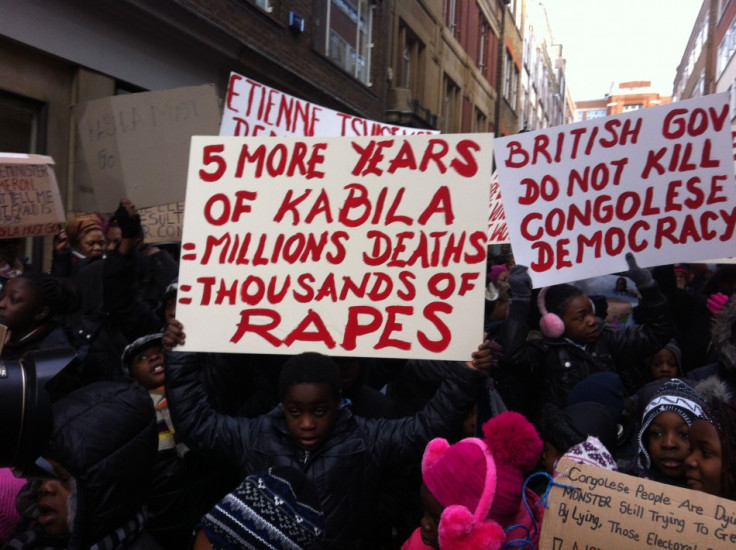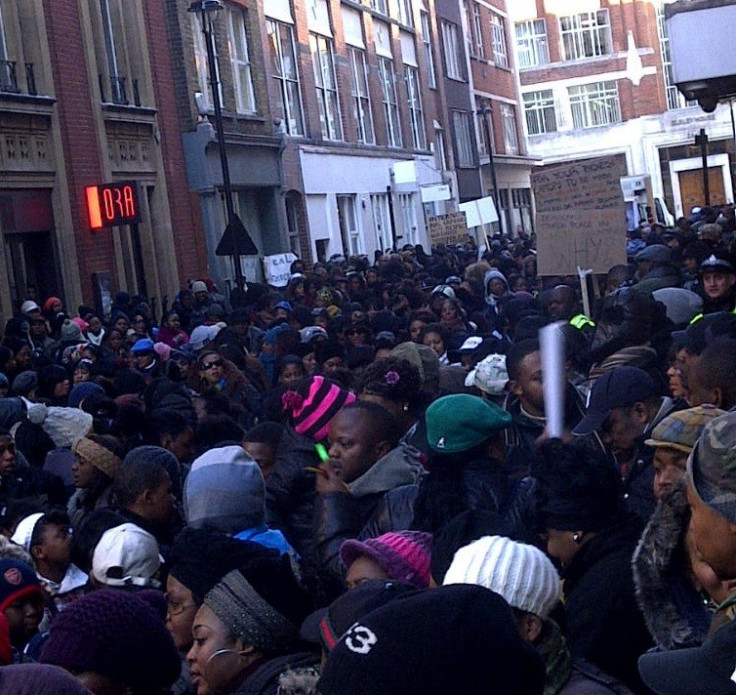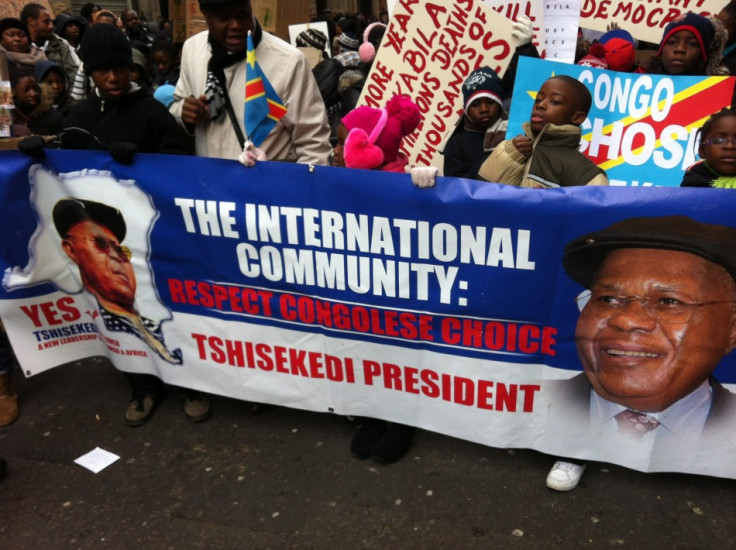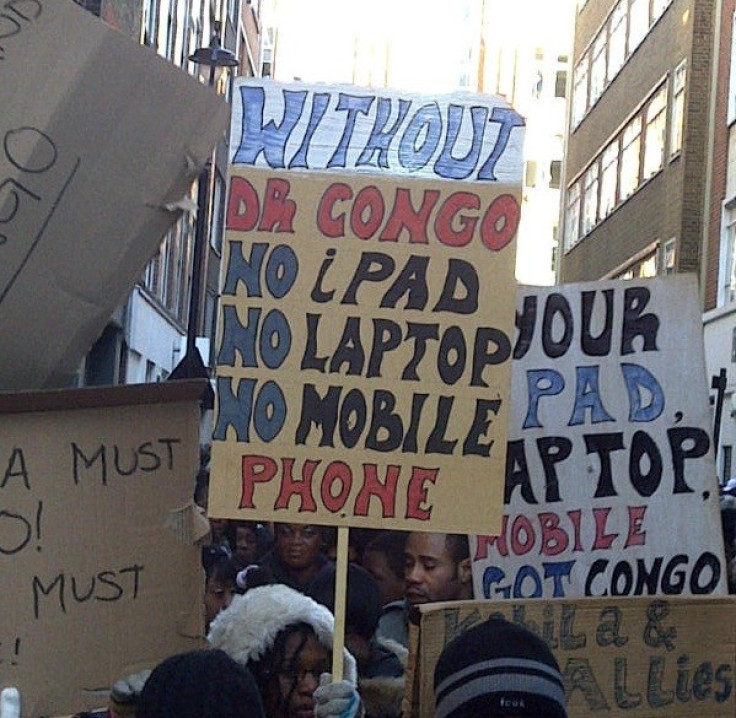DR Congo Protests in London: Why The Media Blackout?
Hundreds of Congolese people took to the streets of London to on Wednesday in protest at the recent elections in the Democratic Republic of Congo and the apparent lack of interest from the Western world.
Crowds began to gather at around 11:00am outside the Congolese Embassy on Great Portland Street to protests against the re-election of President Joseph Kabila against long-time opposition leader Etienne Tshisekedi.
"It's just a peaceful protest to tell everybody that the people of Congo are one, united with the problem of Congo and the need for more international comity to take care with the problem of Congo. The people of Congo are speaking out that they do not want this President anymore, they have raised their saying they don't need him," explained Christian, one of the people from the Congolese community who was at the protest.
But it was not just the nature of the apparent corrupt and bitterly contested election, which was only the second democratic election in Congo's 51-year-history, it was also the worrying lack of interest from mainstream media that has angered the Congolese people.

"You are working for the press, so you have the power to change things. Millions of people have been killed, millions of woman have been raped in Congo all because the media kept silent," said one protester.
More than five million people have been killed by civil war in Democratic Republic of the Congo, making it the deadliest conflict since World War Two. The country also has the dishonour of being described by the United Nations as the rape capital of the world.
Rape is often used a cheap and effective way to clear and gain control of the mines which hold the precious minerals that are frequently used in laptops and mobile phones in the western world. The protests today have been in part because the Congolese people are angry that the western world and mainstream media seem to turn a blind eye when it comes to the situation in Congo.

"That's why we are here protesting. We are asking the press to help us, help us as humans beings," said Alba, another protester at the march. Everybody the International Business Times UK spoke to was desperate to tell the story of what is happening in Congo.
Last week, 143 arrests were made in Central London after trouble flared at a previous demonstration regarding the elections in the Democratic Republic of Congo. The fact that news organisations focused on the arrests and not the cause angered many people on the march.

"The Congolese kill their own people, but there is a silence from the UK, EU and America. Why? There Election was in Egypt, the media was talking about it every day, but in Congo? Never," said Serge, another protester.
"All killing in Congo is to finance the US and America with the minerals, so that is why they will not intervene, because it is a business. It's simple."
DR Congo is rich in minerals such as tin, tantalum, tungsten which are regularly used in the production of mobile phones and laptops. The destructive way in which these materials are exploited, including mass rape and the murder of children, has led them to be dubbed "blood minerals."
"Everybody talked about the Ivory Coast when they saw some irregularities, but when it is Congo's problems, they don't want to talk. It is like they are blind. We can't see anything in BBC, CNN, it is like Congo is not a big thing. We have two million kids killed because of diamonds and minerals and oil, but no one wants to do say anything."

© Copyright IBTimes 2024. All rights reserved.






